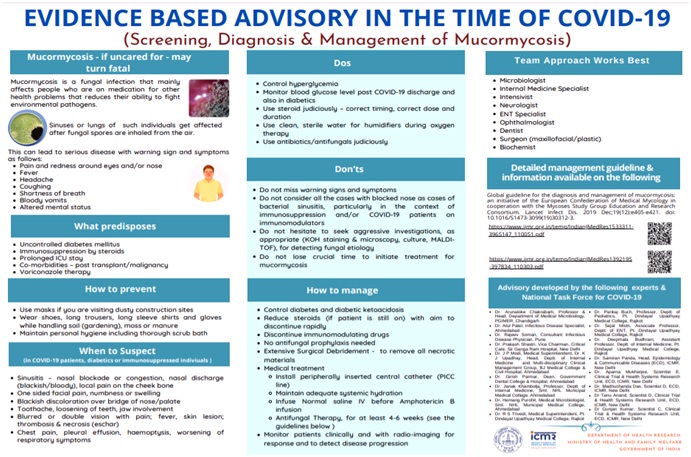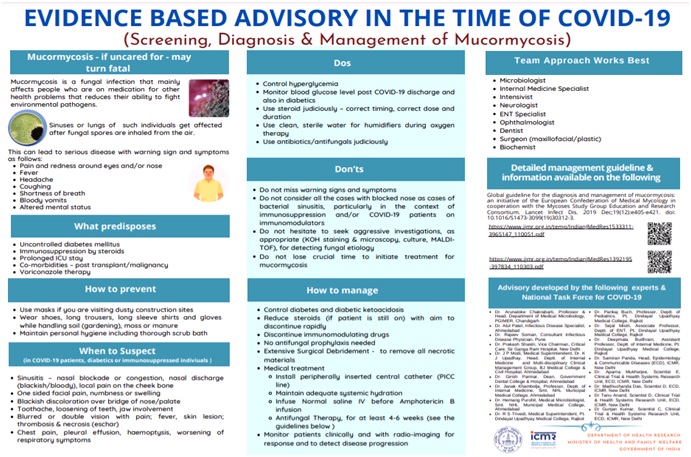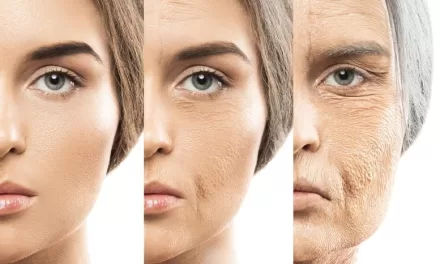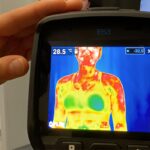Even as we try our best to protect ourselves from and cope with COVID-19, there is another threat being posed by a fungus, which we must know and act upon. Mucormycosis, a fungal infection, is being reported in a few COVID-19 patients during or post-recovery. As per a statement given by the Health Minister of Maharashtra two days ago, more than 2000 people had already been affected by this fungal infection in the state; 10 people had even succumbed to it. Some patients even lost their eyesight.
What causes Mucormycosis?
Mucormycosis or black fungus is a complication caused by fungal infection. People catch mucormycosis by coming in contact with the fungal spores in the environment. It can also develop on the skin after the fungus enters the skin through a cut, scrape, burn, or other type of skin trauma.
The disease is being detected among patients who are recovering or have recovered from COVID-19. Moreover, anyone who is diabetic and whose immune system is not functioning well needs to be on the guard against this.
According to an advisory issued by the Indian Council of Medical Research, the following conditions in COVID-19 patients increase the risk of mucormycosis infection:
- Uncontrolled diabetes
- Weakening of immune system due to use of steroids
- Prolonged ICU/hospital stay
- Co-morbidities / post organ transplant / cancer
- Voriconazole therapy (used to treat serious fungal infections)
How it is related with COVID-19
The disease is caused by a set of micro-organisms known as mucormycetes, which are present naturally in the environment, seen mostly in soil and in decaying organic matter like leaves, compost and piles.
In normal course, our body’s immune system successfully fights such fungal infections. However, we know that COVID-19 affects our immune system. Moreover, the treatment of COVID-19 patients involves intake of drugs like dexamethasone, which suppress our immune system response. Due to these factors, COVID-19 patients face a renewed risk of failing the battle against attacks mounted by organisms such as mucormycetes.
In addition, COVID patients undergoing oxygen therapy in ICU, where humidifier is used, are prone to fungal infection because of exposure to moisture.
But this does not mean that every COVID patient will get infected by Mucormycosis. The disease is uncommon in those not having diabetes but can be fatal if not treated promptly. Chances of recovery depend upon early diagnosis and treatment.
What are the common symptoms?
Mucormycosis begins to manifest as skin infection in the air pockets located behind our forehead, nose, cheekbones, and in between the eyes and teeth. It then spreads to eyes, lungs and can even spread to the brain. It leads to blackening or discoloration over the nose, blurred or double vision, chest pain, breathing difficulties and coughing of blood.
The Indian Council of Medical Research has advised that not all cases of blocked nose should be considered as cases of bacterial sinusitis, particularly during/after the treatment of Covid-19 patients. One must seek medical help for detecting fungal infection.

How is it treated?
While the infection may just begin with a skin infection, it can spread to other parts of the body. Treatment involves surgically removing all dead and infected tissue. In some patients, this may result in loss of upper jaw or sometimes even the eye. Cure may also involve a 4-6 weeks course of intravenous anti-fungal therapy. Since it affects various parts of the body, treatment requires a team of microbiologists, internal medicine specialists, intensivist neurologists, ENT specialists, ophthalmologists, dentists, surgeons and others.
Controlling diabetes is one of the foremost prevention methods suggested by ICMR. Hence, COVID-19 patients who are diabetic need to take utmost care.
Self-medication and over-dosage of steroids can result in fatal events and hence doctor’s prescription should be strictly followed. Speaking about the adverse effects of inappropriate use of steroids, Member (Health), NITI Aayog, Dr. V.K. Paul says: “Steroids should never be administered at an early stage of COVID-19. It should be taken only after sixth day of infection. Patients should stick to appropriate doses of the drugs and take the drug for specific number of days as advised by the doctors. Rational use of medicines should be ensured to avoid adverse side effects of the drug.”
“Other than steroids, use of COVID-19 drugs such as Tocilizumob, Itolizumab also suppresses the immune system. And when these drugs are not used appropriately, it increases the risk, as our immune system fails to fight the fungal infection.” Dr. Paul adds.
ICMR in its guidelines has also advised COVID-19 patients to discontinue immunomodulating drugs, a substance that stimulates or suppresses immune system. The National COVID-19 Task Force has revised the dosage of Tocilizumab to prevent any such adverse effects. Maintaining proper hygiene can also help keep the fungal infection away.
For patients on oxygen therapy, it should be ensured that the water in the humidifier is clean and is refilled regularly. Attention should be paid to ensure there is no leakage of water (to avoid wet surfaces where the fungus can breed). Patients should maintain proper hygiene by keeping their hands as well as body clean.
Buy Preventive Health Products
Be on guard after COVID Recovery as well
After recovering from COVID-19, one should closely monitor and should not miss any warning signs and symptoms mentioned above, as the fungal infection is found to emerge even weeks or months after recovery. One should make judicial use of steroids as per doctor’s advice to avoid risk of infection. Early detection of the disease can ease the treatment of the fungal infection.












